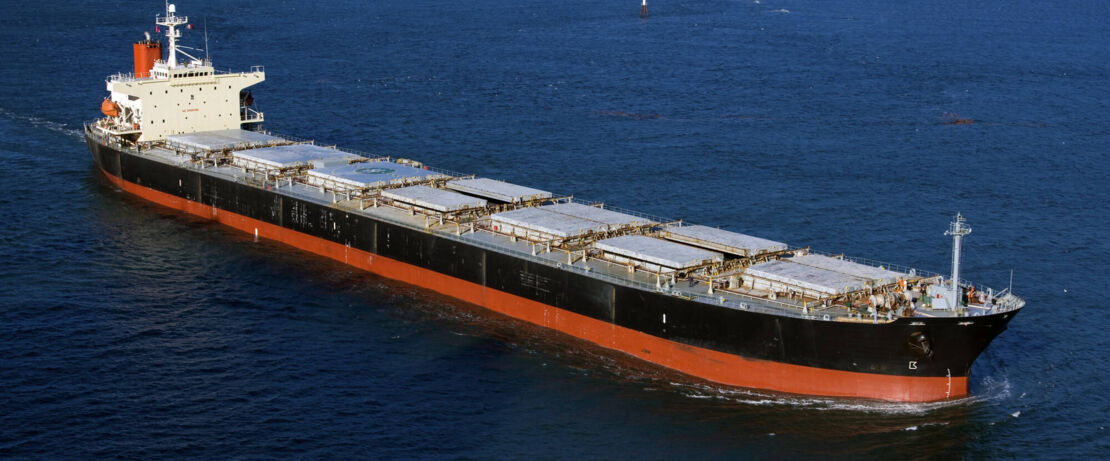
Corrosion Protection
Effective protection for steel and other metals
Damage caused by corrosion not only threatens the safety of bridges, ships, cars or electronic components – it also generates enormous costs, which can total up to four percent of gross domestic product per year in industrialized countries. A protective coating for metal surfaces is therefore vital.
Up to 30 percent of the costs caused by rust could be avoided through effective corrosion protection measures. And the environment would benefit, too: Rusty buildings have to be replaced sooner or refurbished at considerable expense, resulting in yet more emissions.
Environmentally friendly and effective: water-based silanes
Evonik’s water-based silanes are an environmentally friendly and effective alternative for protecting metallic surfaces. They can be deployed as additives or used as the basis for end products. Anti-corrosion agents with Dynasylan® prevent moisture and the chlorides within it from attacking metallic surfaces. Unlike many conventional binding agents, products such as Dynasylan® SIVO 160 do this without using any environmentally harmful heavy metals or fluorides. A further advantage is it’s high reactivity which allows curing even at lower temperatures – thus saving energy and protecting the environment.
Metals need an additional passivation layer
When metals rust, an oxide layer forms on their surface. The biggest risk here is iron rust, as the oxide layer is porous and allows the corrosion to penetrate deep into the material.
The surfaces of aluminum, zinc or magnesium are less vulnerable: When exposed to air, they spontaneously form a thin but air-impermeable oxide layer on their surface. This passivation protects the material beneath against contact with oxygen, and thus from further degradation.
However, this layer is not particularly dense and is not sufficient in aggressive environments such as seawater or highly salty air. These metals thus benefit from an additional passivation layer. A thickness of just 100 to 200 nanometers is often enough to bring about a significant increase in service life.
Dynasylan® forms an insoluble barrier
Silanes are ideal for treating surfaces, as they form an inseparable bond with the substrate, creating a permanent chemical barrier. This works on all kinds of inorganic surfaces, giving Dynasylan® a vast range of possible applications.
Silanes are also outstanding adhesive agents – a property that is especially advantageous when processing metals, as substrates protected with Dynasylan® are easy to coat or paint. In addition, water-based anti-corrosion agents containing silanes are more resistant to fire than organic binding agents.
Chromating and phosphating are problematic
Other surface treatment methods are now viewed as harmful to health or the environment. For instance, corrosion protection with agents containing hexavalent chromium is banned in the EU, as they are carcinogenic. Moreover, because phosphating procedures use aggressive chemicals, wastewater and sludges cannot be released into the environment, but require expensive special disposal.
Every formulation based on customer needs
There are numerous factors to take into account when formulating a surface protection system: The resulting layer must be very thin while still providing effective protection against rust. The metal type and surface properties also have an impact on the composition. Users need to consider which conditions the metals need to withstand and which surface treatment technique is to be used. Evonik’s experts work with the customer to determine what is needed for the respective formulation, ensuring that the system meets every requirement.
The office building known as the “Gherkin” in London and the Picasso Center in Basel are just two of the many famous buildings on which Dynasylan® SIVO has been used. Countless bridges and ships all over the world are also protected against rust using water-based silanes from Evonik.
The environment benefits from this in two respects: Firstly, the solvent-free binding agents are gentle on the environment. Secondly, the protection against corrosion ensures a longer service life, thus contributing to sustainability.
The benefits at a glance:
- Chemical barrier protects against water penetration and exposure to chlorides
- Surface layer locks out moisture
- Chemical reaction creates passivation layer
- Corrosion protection saves resources and costs
- Additional coatings enhance adhesion
